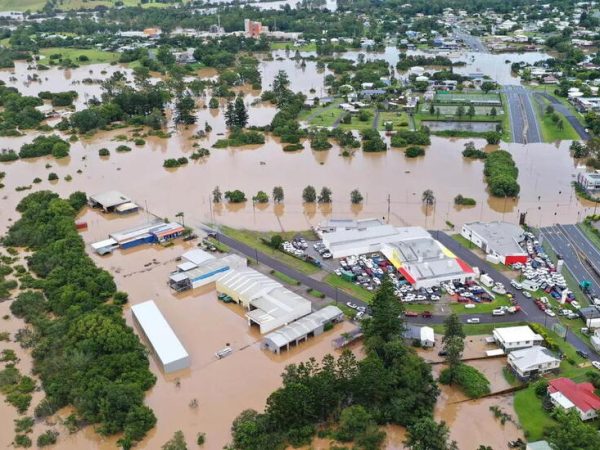The sight of vehicles trapped by the deluge along Oshodi-Oworonshoki axis is frightening. Social media is flooded with images and videos of the devastating floods that had sacked Lagos.
Thousands of commuters and motorists in Lagos state were stranded; no thanks to the heavy rainfall which began around 3 am today.
As expected, the heavy rainfall caused severe flooding in different parts of the state including places like Iyana-Oworo-Alapomeji, Ketu-Alapere, Oshodi-Mafoluku, Aboru, Iyana ipaja, Iyana Iba, Isheri/Idimu-LASU, Ijegun-Abaranje, Ikate, Egbeda-Akowonjo, Jakande Estate, Ogba, Okota and Lekki -Ajah axis of the state.
This flood crisis is nothing new. It has only gotten worse. It is estimated that 24 million people live in Lagos. Experts have also predicted that the city may become inhabitable by the end of this century. The reason is not far-fetched. Sea levels are rising due to climate change. Lagos is lying just two metres above the sea level, at least since the last time it was checked.
According to the research done by the Institute of Development Studies, the flooding became worse overtime due to “inadequate and poorly maintained drainage systems and uncontrolled urban growth.”
Also, the inadequate solid waste management is a significant contributor to blocking drainage systems and increasing flood risk in Lagos. Many household waste is routinely dumped in drainage channels, or in streets and local refuse dumps where it is eventually washed into drainage channels.
Another public nuisance is the widespread consumption of ‘pure water’ or ‘sachet water,’ sold in polythene sachets which are a major source of plastic waste as they often end up accumulating in drains and blocking them.
Earlier this year, precisely in January, the Federal Ministry of Environment and the Lagos State government both announced a ban on single-use plastics.
The Federal Ministry of Environment was the first to issue a directive. It banned single-use plastics in its own departments and agencies. The Lagos State government followed a few days later with a ban on styrofoam containers (popularly used for food packaging) and gave businesses three weeks to mop up styrofoam in circulation.
In a similar vein, the Abia State government issued its own ban on single-use plastics on 27 January.
Reports say that Nigeria generates excessive amounts of plastic waste, nearly 90% of which is mismanaged. 60% of the countries in Africa have various bans on single-use plastics. Not all the countries have made successful reports afterwards.
Indeed, Rwanda is said to have been the only African country that has succeeded with the ban on plastics with strong penalties for defaulters and far-reaching advocacy programmes in various communities.
Clearly, environmental education should be integrated in all levels of the education system to raise awareness for sustainability concerns. Beyond that, Nigeria and other countries need to leverage on content creators and the globe-trotting music stars to add their voices to this campaign against plastic waste and their impact on flooding.
The Nigerian government should also make their constant international travels worthwhile by copying good examples of flood management from other climes. For instance, Singapore uses detention basins to deal with heavy rainfall. Grassed depressions or basins are dug which then fill with water during heavy rainfall.
It is also important for the government to review its urbanization policies. Rather than take over wetlands for housing projects, they should be preserved and protected.
According to the Nigerian Conservation Foundation, wetlands are “reservoirs for excessive rainfall to prevent flooding. Most of the wetlands in Lagos are being sand-filled for estate development, which makes the city more prone to floods.”
The current flood situation in Lagos is indeed an indication of the consequence of ignoring warnings about life-threatening socio-economic issues.
-Written by Yinka Olatunbosun, a senior journalist.



















